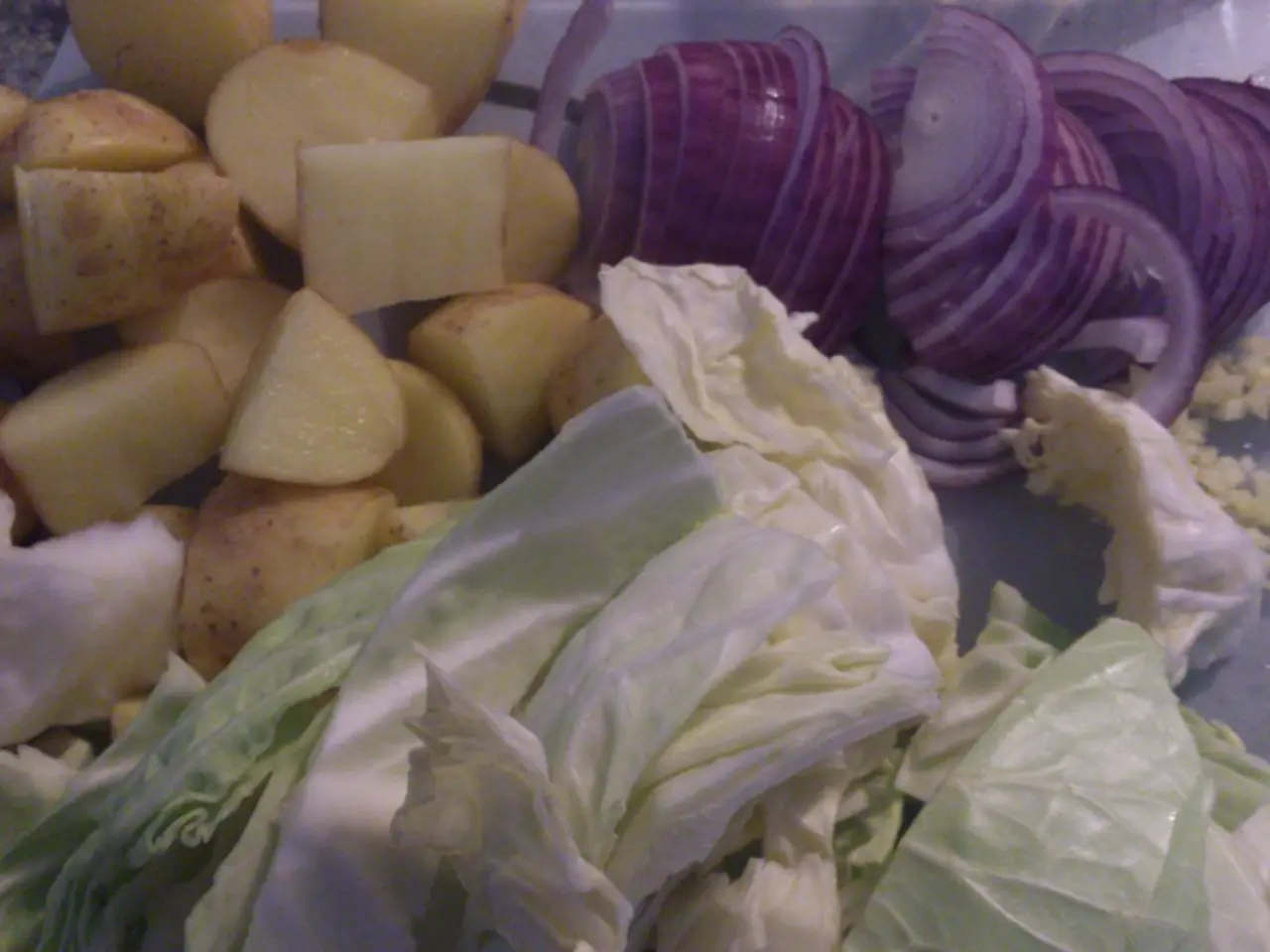Fermented Vegetables
In the realm of nutritious and flavourful recipes, the Cultured Veggies recipe stands out as a crowd-pleaser. This recipe, which includes ingredients like jicama, green cabbage, spinach, apple, onion, garlic, sea salt, orange zest and juice, and a starter culture, offers a host of health benefits.
Cultured (fermented) vegetables, such as those in this recipe, are renowned for their probiotic content, enhanced nutrient bioavailability, and improved digestion. Here's a breakdown of the key health benefits you can reap from regularly consuming these fermented delights:
- Boosted Immunity: The probiotic bacteria introduced during fermentation help balance gut microbiota by crowding out harmful bacteria, thereby supporting a stronger immune system.
- Improved Digestion: Natural enzymes produced during fermentation break down complex food compounds, making nutrients easier to absorb and enhancing digestive efficiency. This also reduces symptoms like bloating and gas.
- Enhanced Nutrient Availability: Fermentation increases the bioavailability of vitamins (such as vitamins A and C) and minerals (like iron and potassium), helping the body better utilize these essential nutrients.
- Gut Microbiota Modulation: Consuming fermented vegetables results in favorable changes to the gut microbiome, increasing beneficial bacterial genera associated with gut health, which may have wider systemic effects.
- Reduction of Anti-Nutrients: Fermentation reduces anti-nutrients (e.g., phytic acid) that impair mineral absorption, enhancing the overall nutritional quality of the vegetables.
The Cultured Veggies recipe, in particular, offers a delightful fusion of flavours. Jicama, cabbage, spinach, apple, and garlic each provide fibre and micronutrients that, when fermented, become more digestible and supportive of gut bacteria. Sea salt and the starter culture ensure proper fermentation and the growth of beneficial microbes. Orange zest and juice add natural flavour and vitamin C, which is preserved or enhanced during fermentation, contributing to antioxidant benefits.
To prepare the Cultured Veggies, shred or chop the first six ingredients (jicama, green cabbage, spinach, apple, yellow onion, and garlic) and place in a bowl or layer in the jar without mixing with salt. Add orange zest, juice, and culture to the packed mixture. Cover the mixture with water, leaving an inch or two at the top. Seal the jar tightly and let it sit on the counter for 6 days before placing it in the refrigerator.
While the recipe provides a wealth of health benefits, it does not specify the type of water to be used for covering the mixture, the storage life of the fermented vegetables once refrigerated, or any additional steps to be taken after the fermentation period, such as draining or rinsing the vegetables before refrigeration. It's also unclear if the recipe is intended for prevention or treatment of the flu.
Regardless, the Cultured Veggies recipe offers a tasty and nutritious addition to any diet, promoting a healthier gut microbiome, aiding nutrient absorption, strengthening immunity, and supporting overall digestive health. Enjoy!
- Incorporating the Cultured Veggies recipe into a healthy-diets plan can provide a robust boost to immunity, as the probiotic bacteria introduced during fermentation help maintain a balanced gut microbiota.
- Consuming the Cultured Veggies, with its blend of cabbage, spinach, apple, garlic, and fermented jicama, can contribute to enhanced nutrient availability for fitness-and-exercise enthusiasts, due to the increased bioavailability of key nutrients like vitamins A and C.




